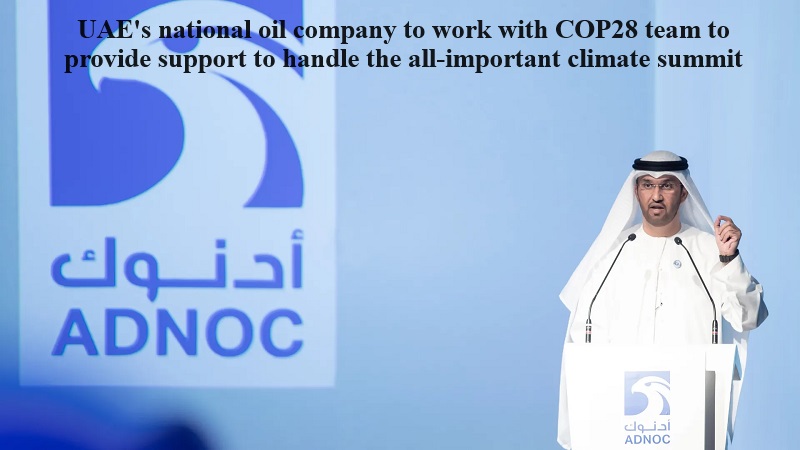
Senior executives from the United Arab Emirates’ national oil company are reportedly collaborating with the COP28 team in preparation for the upcoming climate summit in Dubai, according to a report by The Guardian.
The leaked COP28 communications strategy document cited by the publication indicates that two PR professionals from the Abu Dhabi National Oil Company (Adnoc) are providing “additional support” to the team organizing the summit. This development has raised concerns, considering the UAE’s significant role in the fossil fuel industry and the potential conflicts of interest it may pose for a climate summit.
The two Adnoc executives, Philip Robinson and Paloma Berenguer, have a combined 28 years of experience in the fossil fuel sector, as indicated by their LinkedIn profiles. Prior to their roles at Adnoc, both had worked for Shell, another major fossil fuel company.
The UAE, which possesses six percent of the world’s oil reserves, has a substantial stake in the fossil fuel industry. Hosting a climate summit of global significance requires a host country to adopt a neutral and non-controversial stance, which may be challenging when there are strong ties to the fossil fuel sector. Despite these concerns, the UAE appointed Sultan Ahmed Al Jaber, a fossil fuel executive and Adnoc’s chief executive, as the head of COP28.
This is not the first controversy surrounding the COP28 summit. Earlier this year, reports emerged that members of Al Jaber’s team had edited Wikipedia pages to “control the narrative” amid criticism of an oil industry leader leading a climate summit. The edits included adding content that portrayed Al Jaber as an ally of the climate movement and the removal of references to a multibillion-dollar oil pipeline deal.
These developments have raised questions about the transparency and integrity of the COP28 summit, particularly regarding the influence of fossil fuel interests in shaping its agenda and messaging. Climate activists and observers are closely monitoring the preparations for the summit, given the critical role it plays in addressing the global climate crisis.

Post Your Comments